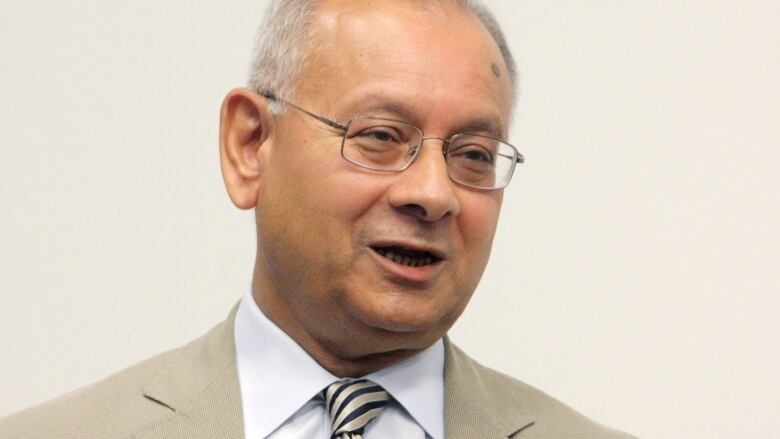Ex-deputy police chief's commitment to black community kept him out of top job, former board chair says
Alok Mukherjee says he didn't support the choice of Mark Saunders to be the new chief until 'the last minute'

The former head of the Toronto Police Services Board says he didn't support Mark Saunders to be police chiefand that some in the force thought Saunders' rival for the job was "too committed to the black community"to serve in the role.
Alok Mukherjee, chair of the police services board for a decade before he left in June 2015, only backed Saunders "at the last minute" after it became clear he was the only dissenting voice on the board. The board is a seven-membercivilian body overseeing the police service.
"I made a good attempt, after the decision was made, to work with Saunders," Mukherjeesaid in an interview with CBC'sMetro Morningon Tuesday.
He added that he didn't go public with his dissent because, as chair, it was his job to represent the board's decision to taxpayers.
"But the word unanimous was never used by me in announcing the decision."
Mukherjee's new book,Excessive Force: Toronto's Fight to Reform City Policingwas released last month. Tim Harper, a former Toronto Star columnist, co-authored the deep dive into efforts to modernize the force.
In it, Mukherjeeexplainshow he believes "police culture" has impeded change and reflects on the tenure of former chief Bill Blair. He also offers a behind-the-scenes re-telling of how Saunders came to be chosen over former deputy chief Peter Sloly, who resigned from the force after 27 years shortly afterwards.
"What I point out in the book is that months before the selection happened, a senior member of the mayor's office had coffee with me and said, 'Are there other people? Alternatives to PeterSloly?'" Mukherjeerecalls.
"And my answer to him was, if we are looking for readiness, there is no one else in the service who is more ready than Sloly."
In his book, Mukherjeewrites that the "fix was in" for Saunders.
"There was always this part of the murmuring inside the organization from the day Sloly became deputy chief, that he was too assertive, that he was too committed to the black community and black issues," he told host Matt Galloway.
"There were people who were very much opposed to him from the time that he was deputy chief. And that opposition manifested itself in conversations in responses to his actions, in characterizations of him, and it came from several parts of the organization."
Mukherjeedeclined to identify anyone but Saunders and Sloly by name.
CBC Toronto contacted the board and its chair, Andrew Pringle, for comment but has not received a response.
Disagreement with mayor
Once it became clear that the other six board members supported Saunders in the bid, Mukherjeerelented in his opposition.
"At the end, it was six to one. And my answer, was, since the decision is made, I'll go along with it."
Mukherjee is currently a visiting professor of criminology at Ryerson University. The long-time public servant said his relationship with Toronto Mayor John Tory was "collegial," but the two had steep disagreements about carding that resulted in a "mess."
According to Mukherjee, Tory desperately wanted to end the stalemate that developed between the board, which had developed an anti-carding policy, and former chief Blair, who often defended the practice as a necessary tool for effective policing.
Tory pressed for third-party mediation between the board and the force, which was how the issue was ultimately settled.
Mukherjee said the move was "unprecedented" and that "the outcome was a disaster."












_(720p).jpg)


 OFFICIAL HD MUSIC VIDEO.jpg)
.jpg)



























































































